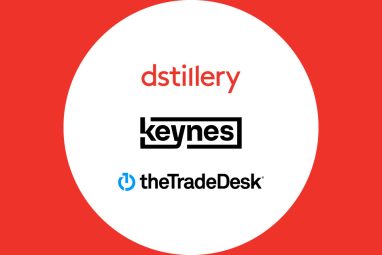1 In 2 MENA Consumers Are Excited About The Metaverse: Study
GfK, a provider of consumer and market intelligence, analytics, and consulting services, unveiled an exclusive Consumer Pulse Study. The study is aimed at understanding how Middle East Consumers feel about key evolving trends happening globally as well as here in the Middle East and seeks to uncover key trends, barriers, needs, gaps, and drivers impacting […]
Topics

GfK, a provider of consumer and market intelligence, analytics, and consulting services, unveiled an exclusive Consumer Pulse Study.
The study is aimed at understanding how Middle East Consumers feel about key evolving trends happening globally as well as here in the Middle East and seeks to uncover key trends, barriers, needs, gaps, and drivers impacting consumer lives in this new transformed reality.
Nacho San Martin, Managing Director – Middle East, GfK said: “Consumers in the MENA region are adapting and recovering to a new consumerism order amidst global unrest, heightened economic pressures alongside newly adopted consumer choices and behaviours. This is reflected in consumer purchases as Technical Goods Market growth in the MENA region is the strongest worldwide. GfK Consumer Pulse Study, conducted across UAE, KSA, and Egypt, is aimed at understanding changing consumer lifestyles, attitudes, and behavior and what’s next for brands & industries.”
“In the Middle East region, GfK is committed to helping consumer product companies to deliver growth with data-driven intelligence by offering access to critical knowledge in real-time powered by gfknewron around consumers, markets, brands, and media. We are also continuously strengthening our position & operation in geographies with significant growth potentials like Saudi Arabia, UAE, Iraq, and Pakistan.”
Consumer optimism about the economy and personal finance
MENA Consumers are more resilient and tend to be more confident but are not completely immune from financial pressures driven by Covid-19, inflation, and the Ukraine conflict. While they are mirroring broader global and emerging market tendencies, 2 out of 3 surveyed consumers in MENA are optimistic about the country’s future economic situation and more than half are very confident of better financial status in the next 1 year.
Dr. Christoph Preuss, Vice President – Global Marketing & Consumer Intelligence, GfK said – “For business, brand and marketing leaders to navigate a world of uncertainty and high emotions, three trends to watch for in the near and long term are – 1) Emerging concerns as consumers are paying higher prices, we are watching our wallets, but we still pay for quality, 2) Sustainability-focused behavior of brands as consumers across MENA are mindful of conserving natural resources and reducing consumption, and 3) The Metaverse and how it is changing the way we live, work, play, enjoy, and pay.”
Into the Metaverse – A new era for integrated brand experiences
Consumer digitisation across the region goes from strength to strength and the next evolution of digital experiences is becoming a reality as tech giants, and brands gear up to build the metaverse and not forget about the physical world and AR. More than half of surveyed consumers in MENA are interested to learn more about the Metaverse, and willing to experience it. They believe it will make their shopping experience more exciting.
“The emerging metaverse will reshape retail and brand interactions while promising new revenue streams. While expectations towards the virtual world are high, there is still a significant room for brands to engage with brands in the non-virtual world.” Dr. Preuss added.
Evolving shopping behaviours and preferences
Consumers across the MENA region spend less and hunt for deals. More than half of surveyed consumers in the middle-income class in KSA and Egypt spent less on everyday necessities because of rising prices (e.g., food and clothes). 2 in 5 consumers in KSA and Egypt have postponed a purchase until the product was on sale/special offer and switched from premium brands to less expensive brands.
“For brands, price is important but more important is to build consumer trust and loyalty for competitive advantage,” – says Dr. Preuss.





